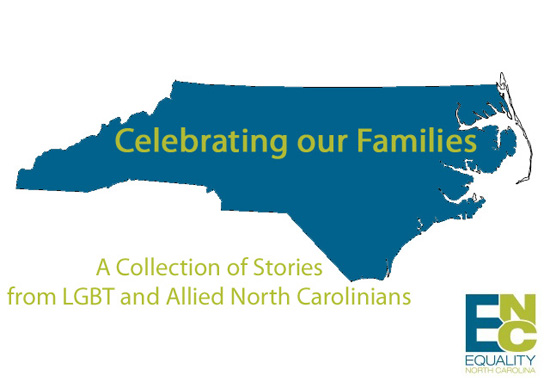By Pam Spaulding, of Pam's House Blend.
I am a native North Carolinian, and a happily married woman. My spouse, Kate and I married July 1, 2004, at 11 AM in the morning at the Apricot Cat and Black Dog Bed & Breakfast in Vancouver, British Columbia, Canada.
At that time it was the only place we could legally marry in North America. Today, our marriage is recognized in a few states -- Connecticut, Iowa, Massachusetts, New Hampshire, Vermont, and Washington, D.C.; the Coquille Indian Tribe in Oregon also grants same-sex marriage. New York, Rhode Island, and Maryland recognizes same-sex marriages, but they are not granted.
The 1996 Defense of Marriage Act (DOMA) was signed into law by President Bill Clinton, and it allowed states not to recognize legal same-sex marriages performed in other states.
DOMA is clearly unconstitutional from a common sense perspective -- there is no sane justification for the fact that when Kate and I get on a plane and fly to New York that we're married, and when we return to North Carolina we're not. North Carolina fortunately has not passed a marriage amendment due to the hard work of Equality NC and allies in the General Assembly; our state, however does have its own DOMA to ensure our union is not recognized.
Yet my state-issued drivers license is valid in all 50 states. What's the difference? It's really that simple - we're talking about the culture of marriage, the heterosupremacy, the church/state conflation of marriage.
Our legislators are behind the times when it comes to cultural change on marriage. We live in North Carolina and have not experienced discrimination when introduced as a married couple. Most of the time we're asked where we got married and whether it is legal -- that is, of course, an ice breaker and opportunity to educate people about the fact that we may be married, civil unioned, domestic partners or strangers in the eyes of the law depending on what state we are in. People are usually perplexed, and even in a state with a good level of cultural conservatism, it's hard to dismiss us as unworthy of rights when it's a one-to-one conversation with a same-sex couple willing to speak about the issue.
Visibility challenges assumptions; show willingness to explain to potential allies how your legal-somewhere-else marriage is denied where you live. The fact is we will prove by example that our relationships will not cause an end to anyone else's marriage or destroy society, and it will move all of us closer to full civil equality.
You can see photos and stories included in our wedding album here.

No comments:
Post a Comment